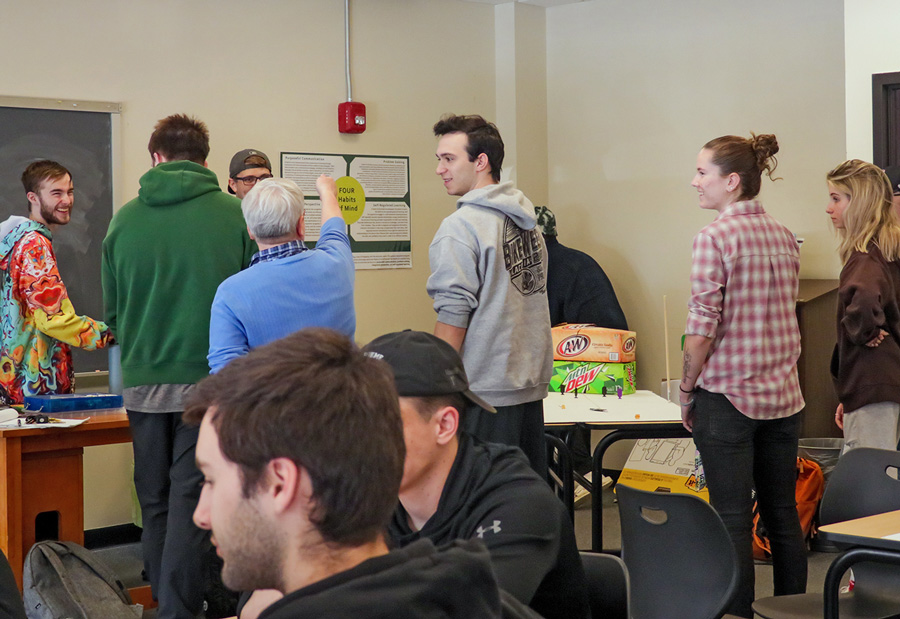
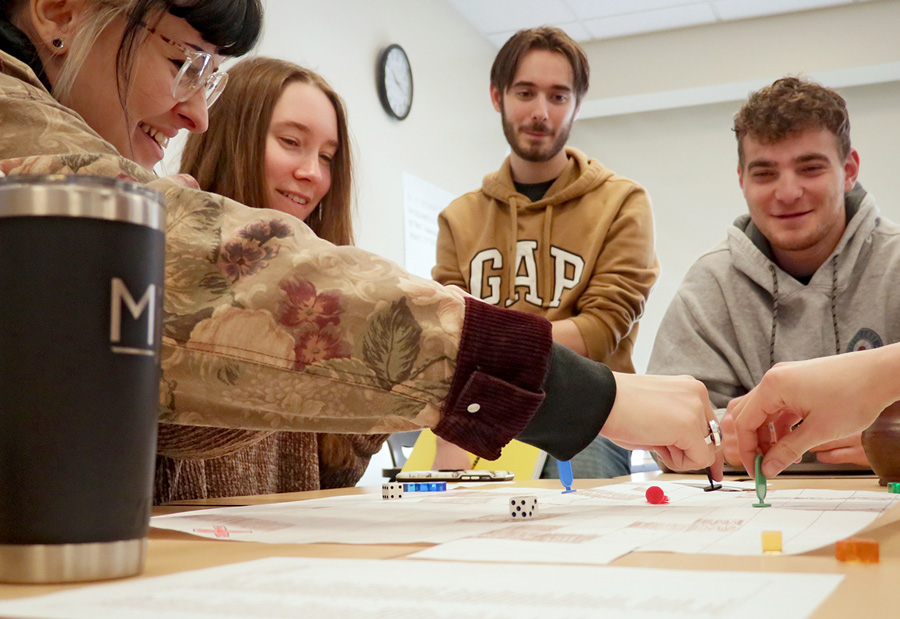
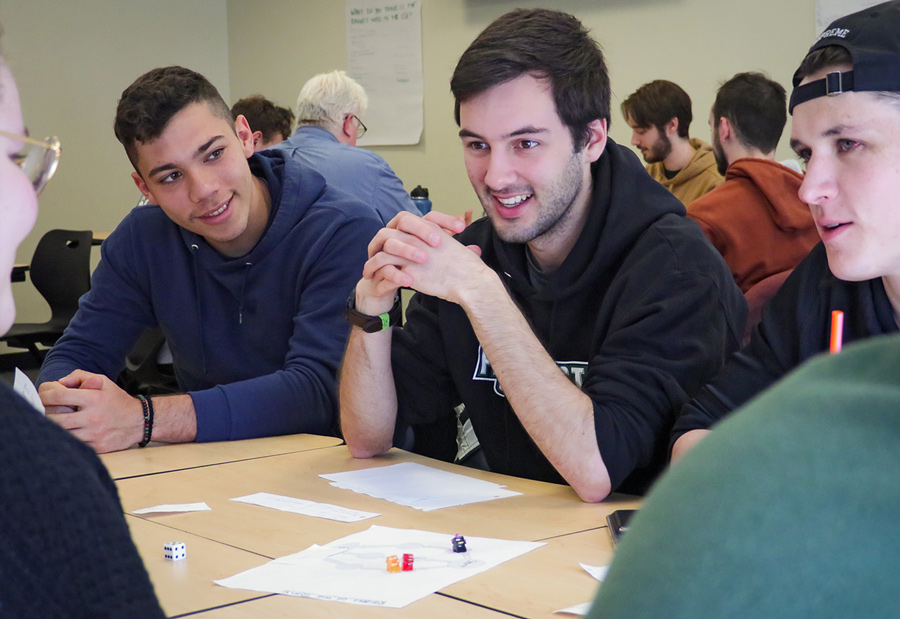
PSU’s game design program focuses on the technical and creative aspects of making games, as well as developing a broad perspective and understanding of the gaming industry. Students will be able to position themselves for work as innovative game designers, interactive web developers, and as digital artists and in other related fields, either at an agency or as independent designers.
The program will introduce students to the principles and practice of game design through workshop courses and related studies in art, business, communication and media studies, computer science, graphic design, and music. Students will also complete coursework in disciplines such as English and history to inspire their perspectives about the worlds their games embody. Students enrolled in the game design program will have the opportunity to choose between the technology track, which will focus on the technical aspect of programming games, and the creative media track, which will focus on designing game art and creating audio and sound effects.
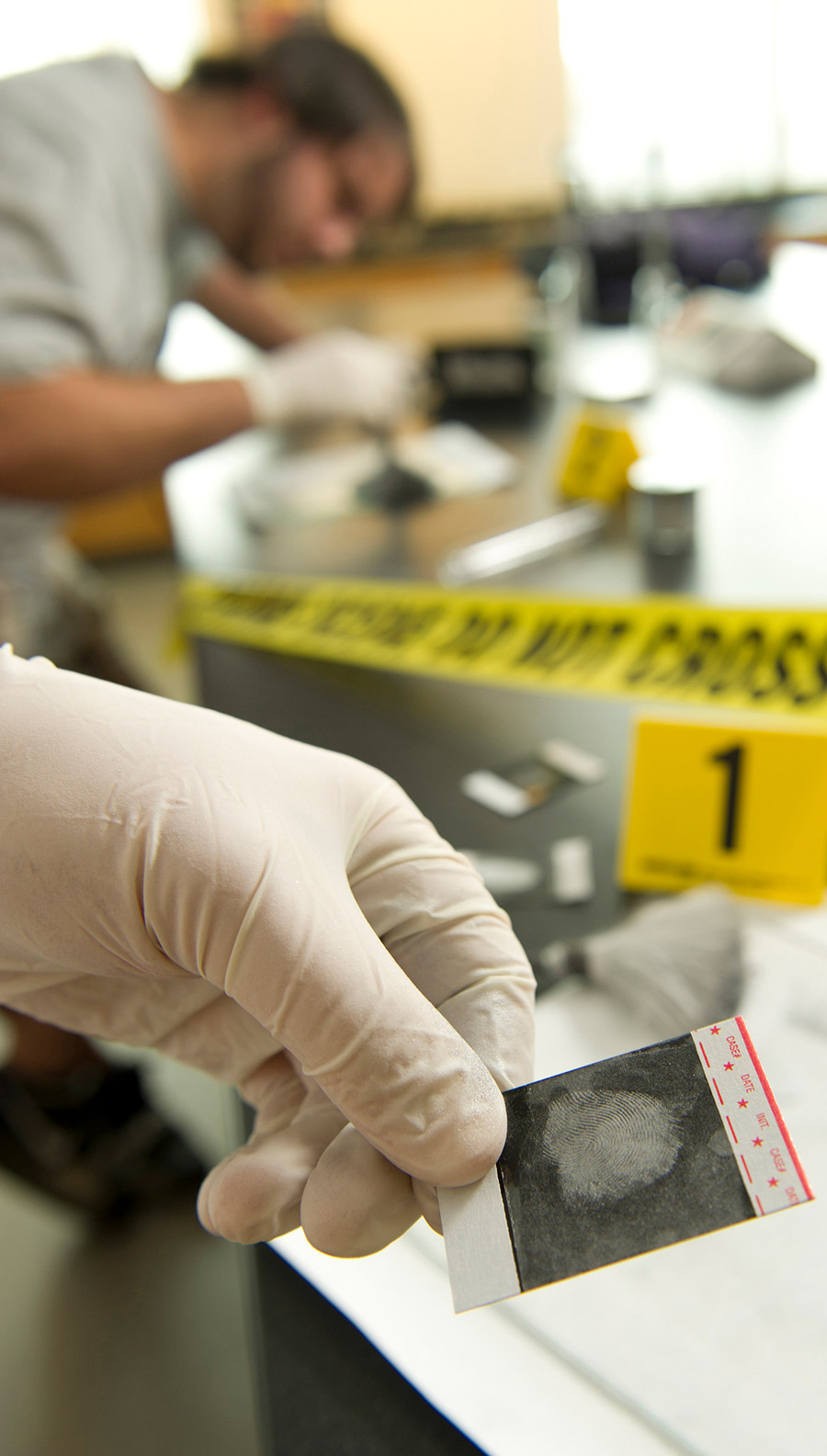
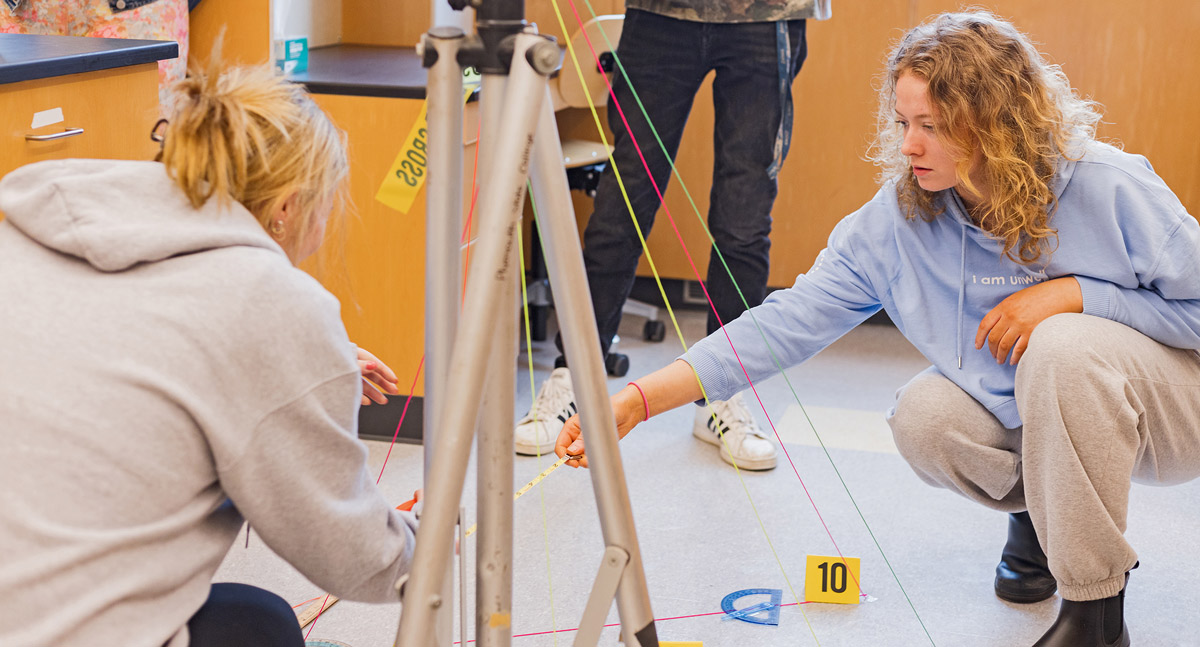
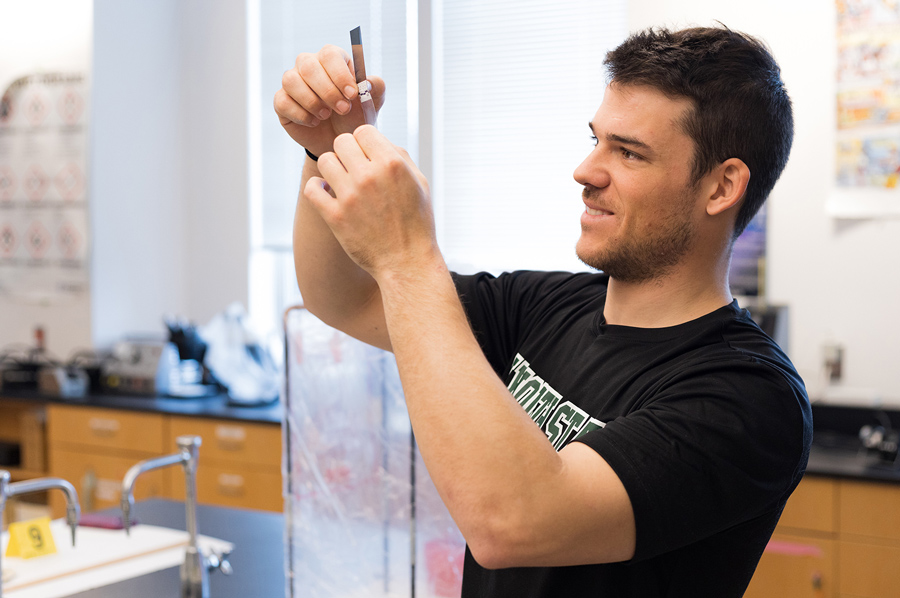
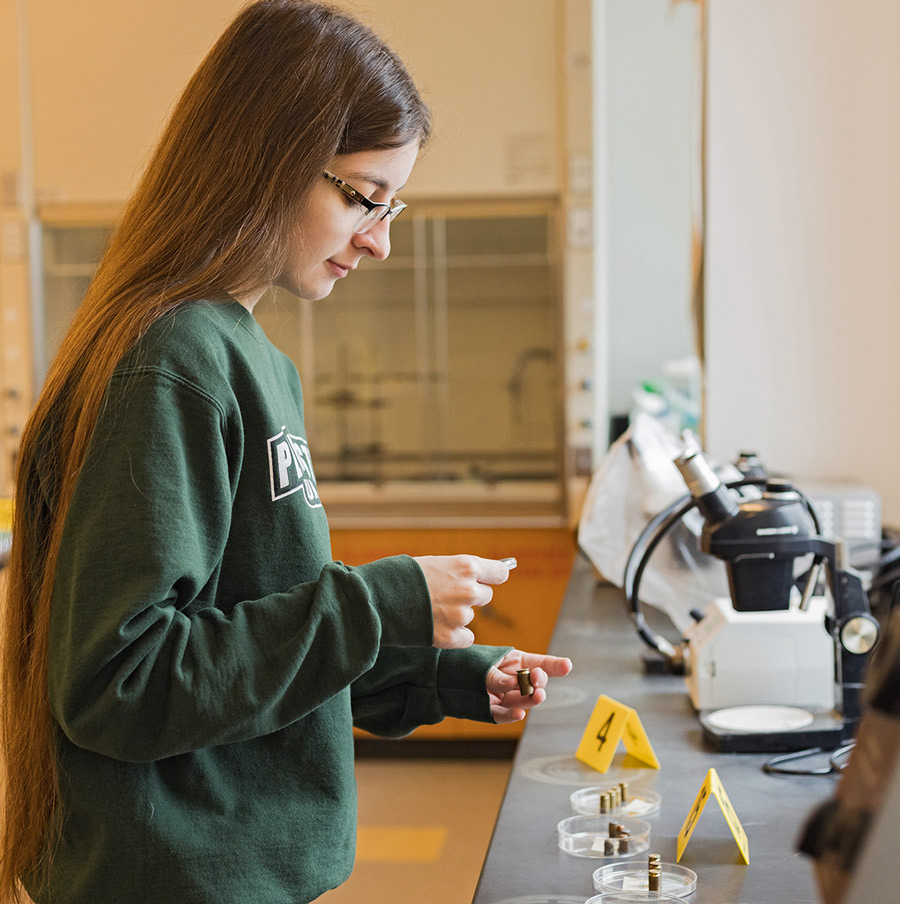
This program is geared toward both science and non-science students with a passion for investigation and problem-solving. The program will be the only bachelor’s degree program in forensic science offered by a public university in New Hampshire.
Students will complete courses in criminal justice, chemistry, psychology, computer science, biology, and anthropology. While it is a STEM-oriented program, the coursework emphasizes both a solid theoretical foundation and strong laboratory skills in combination with a critical, detail-oriented approach to investigations.
“Almost all high schools in New Hampshire have forensic science courses, but until now, a forensic science bachelor’s degree has never been offered at any of the state’s public universities,” says Professor Anil Waghe. “One factor that sets PSU’s forensics program apart from other universities is access to laboratory equipment. Most research universities have modern laboratory instruments like PSU, but they don’t allow undergraduate students to use them. That access is generally restricted to graduate students and postdoctorate students. At PSU, we train our students on these instruments so they are ready to work in the field as soon as they graduate.”
The bachelor’s degree program allows students to choose from one of three specialties: forensic laboratory analysis, digital forensics (i.e., cyber-attacks) or forensic psychology. Students enrolled in the program also can obtain multiple specialties and/or minors in chemistry, psychology, criminal justice, and biology with just a few additional courses using their free electives.




PSU’s program will give students the tools to create a more sustainable and equitable future by developing combined skill sets from fields including business, the social sciences, the arts and humanities, environmental science, and public health.
“PSU has had sustainability studies minor for years,” said Professor Brian Eisenhauer, director of the office of environmental sustainability. “This program is focused on influencing cultural behavior to effect change. In addition to a grounding in the science of sustainability, our approach will help students understand factors that affect human behavior and develop the communication skills they will need to help others live more sustainably.”
Students will engage in interdisciplinary learning on local, national, and global scales; learn systems-thinking approaches for identifying and resolving sustainability-related problems; and develop skills to promote equitable collaboration, policy, and collective action. They will develop professional and transferable skills for careers in sustainability professions, including private industry, government agencies, nonprofit settings, and others.
PSU has long been committed to sustainability on its campus and has taken several steps toward carbon neutrality. PSU’s efforts range from large capital projects such as solar electric, geothermal, and biomass energy systems, as well as programs to engage the campus community and community-at-large.
“This program is a natural fit for PSU,” said Eisenhauer. “Our vision is to create agents of change—students who will put what they learn here into action in their careers and in their lives.”
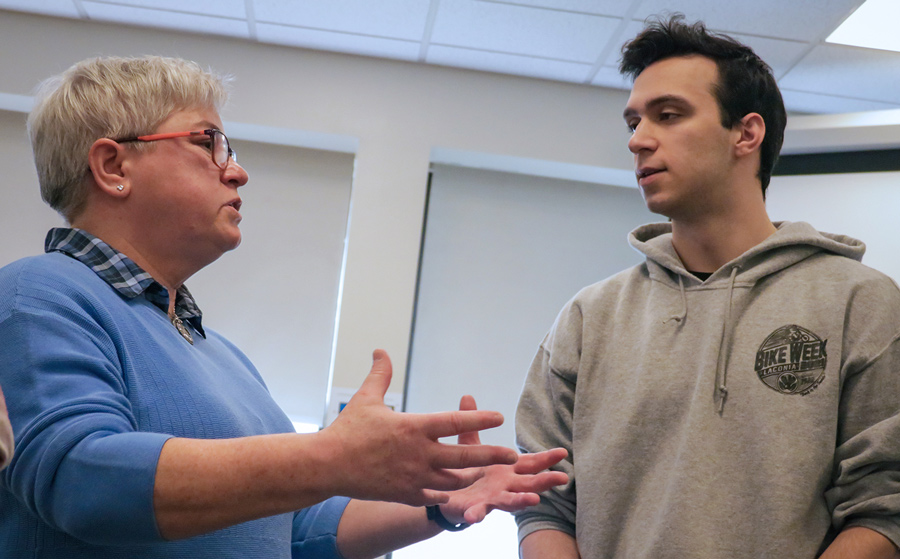
LeBlanc is the primary pedagogical architect behind the new game design major and, as coordinator of general education, a Cluster Learning thought leader. When considering the University’s three newest programs she sets her sights on the big picture.
“I want us to be known as the place you come to get this interdisciplinary project-based learning, which prepares you to be an active agent in the world,” says LeBlanc. “We’ve made choices in the Gen Ed program so that we can ensure that every student gets those opportunities regardless of their major.”
Flexibility is key given today’s rapid pace of change, so Cluster Learning zeros in on ‘learning how to learn’ rather than mere acquisition of content. “That’s why ‘problem solving’ is among the Habits of Mind that underpin Cluster Learning,” explains LeBlanc. “Our goal is to provide experiences that students need in order to gain confidence that they can actually make a difference in the world.”
LeBlanc points to Professor Abby Goode’s Integrated Capstone course, American Food Issues: From Fast Food Nation to Farm Stands, as an example. The course embraces interdisciplinarity and draws from multiple perspectives in a way that supports self-directed learning and prioritizes student agency.
“The students talked about science, about education, and about all these different disciplines that relate to food,” says LeBlanc. “Then they pitched their project ideas to a group of faculty and staff. Getting feedback from an authentic audience prepares them for the real world they’re about to enter.”
The game design program will foster a similar sharing of expertise. Students can focus in either creative media or technology, and disparate backgrounds and inclinations will combine to create real games. “Even within the major, we’re bringing together students who are interested in different aspects of the game design business,” says LeBlanc.
LeBlanc foresees future game design graduates who have what it takes to succeed in premier game design firms like Electronic Arts Inc. and Blizzard Entertainment, but to also have the entrepreneurial skills to start up their own businesses. She notes, “There are nine small game design studios right now in New Hampshire. I really think that’s where the market may be heading.”